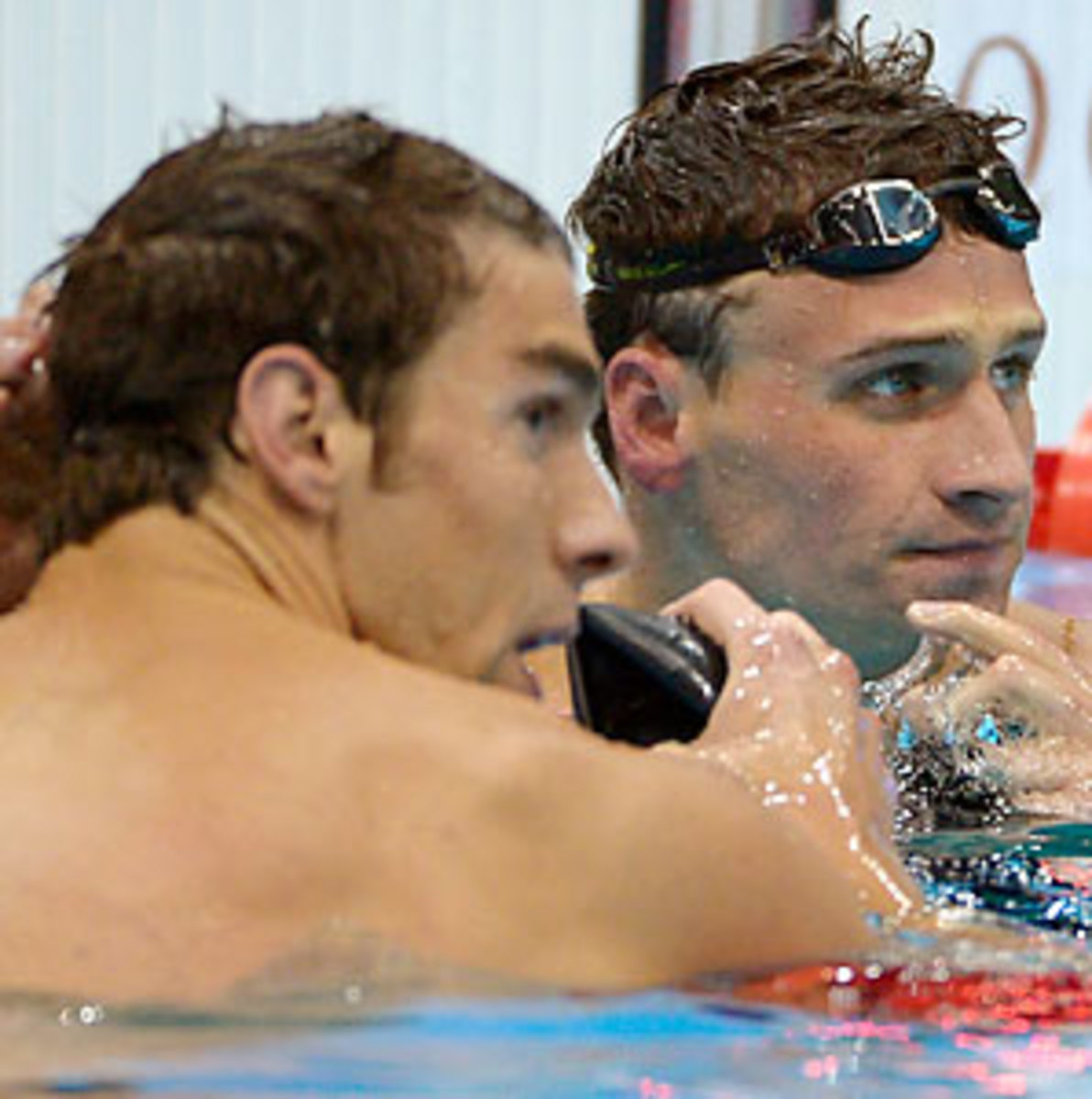Phelps, Lochte on course to settle epic rivalry in epic final duel
Ryan Lochte vs. Michael Phelps. Mano-a-mano. Chlorinated testosterone.
In sports, greatness is squeezed from the tight grip of a true rivalry. It's the Magic Johnson-Larry Bird formula. Competitive heat can't exist in a vacuum and doesn't thrive in a field that one person dominates.
Is there an equal who pushes? Who matches? Who conquers?
The answer to all those questions in Phelps-Lochte is yes, yes and yes. They push each other, either can beat the other. On the nights they aren't relay teammates they are rivals -- their own private measuring sticks ripping through the water in the next lane.
"We love racing each other," said Phelps. "Neither one of us likes to lose. I'd like to say we bring out the best in each other."
There's even an eerie symmetry in their Olympic experience here. Lochte blasted to gold in the first night of competition, leaving Phelps frustrated and in fourth place. Then Lochte faltered -- getting caught on the anchor leg of the 4x100-meter freestyle relay, giving the U.S. silver, and finishing fourth in the 200-meter free, a race Phelps had opted not to swim -- and it was Phelps' turn to surge. He won silver in the 200-meter butterfly and anchored the U.S. team to gold in the 4x 200-meter freestyle relay.
With that relay victory, Phelps won his 19th Olympic medal, the most in history.
Lochte has said he tries to find new ways to keep himself motivated. Well, here's a new way: how about trying to beat the greatest Olympian of all time?
In Wednesday's prelim for Thursday's epic 200 IM final, Lochte and Phelps swam -- once again -- side by side, churning the water into surfable waves. They were both fired up when they came out for the race; teammate Nathan Adrian had just won gold in the 100-meter freestyle.
"We were in the ready room watching and we just went nuts," Lochte said. "We were screaming and everything."
It was a good night at the pool for the Americans. Expect another one on Thursday.
"We've had a great week so far," Phelps said. "We're only halfway done and we are just starting to pick up more and more steam."
Once they hit the water, Phelps had the lead through the backstroke, but Lochte surged ahead of Phelps on the breaststroke, increased the lead through the freestyle, and won in 1:56.13. In the second semifinal Hungarian Laszlo Cseh bettered Phelps' time to post the second best time of the night.
The swim nerds are breaking it down: Who's better on the turn? On the underwater kick? In the back, the breast, the fly, the free? How will Lochte's double -- he swims the final of the 200-meter backstroke about 31 minutes before the 200-meter IM is set to go off -- impact his performance?
The biggest non-technical question is who has the most to prove?
Lochte, who will turn 28 on Friday, has been proclaiming that this is his time. He's been willingly molded and marketed as this year's hot Olympic athlete. Would beating Phelps in one race be enough? Does he need to beat him twice to really leave his mark on history?
Does Phelps, 27, have anything left to prove? He's Olympic royalty, the kind of generational performer than will be the stuff of legend in 50, 75, 100 years. But he's retiring after these Olympics and has a legacy to protect and burnish. A loss would not sit well.
Lochte became the swimmer he is because of Phelps -- sick of being regularly beaten by him for years, he remade himself into the swimmer he is today. And Phelps' internal fire was waning until Lochte started to assert himself -- then it hissed and spit and flared up again.
Whatever happens, Thursday is a must-see event. The last time the two swimmers will go head to head.
The final round of the greatest swimming rivalry in American history.





